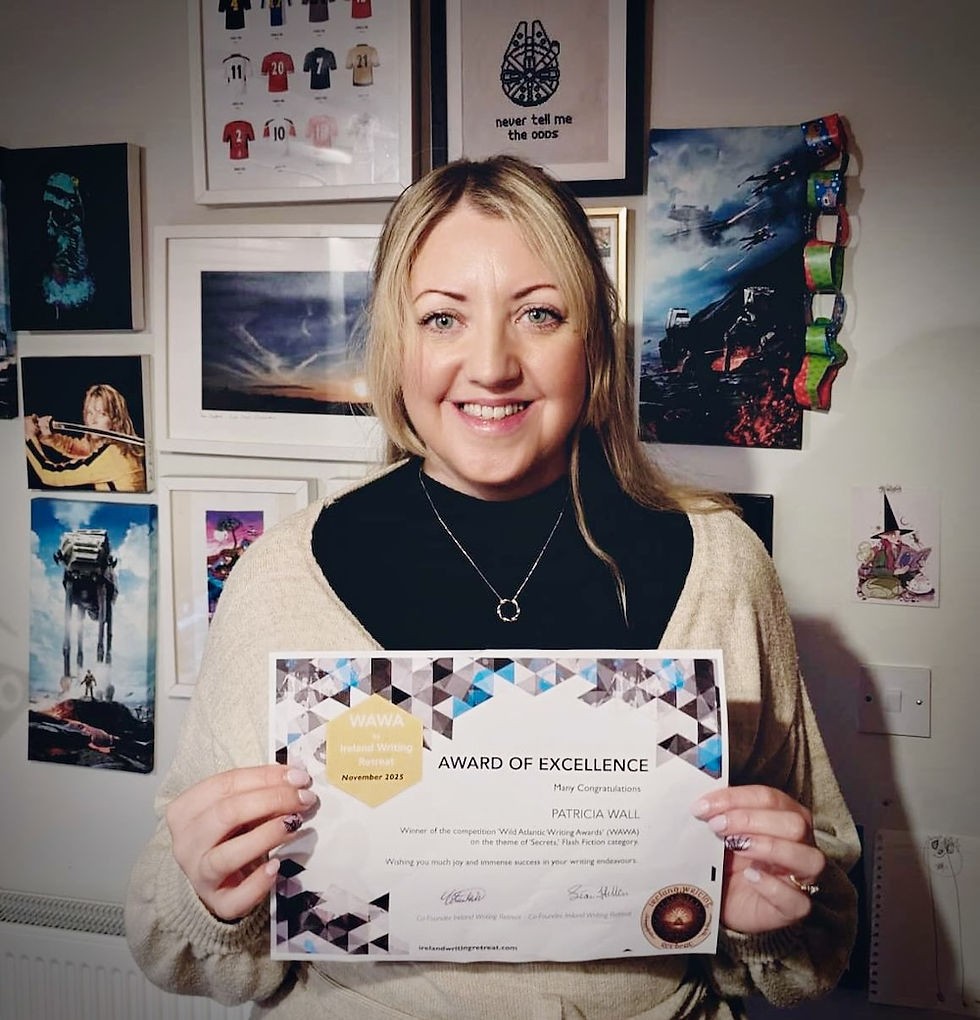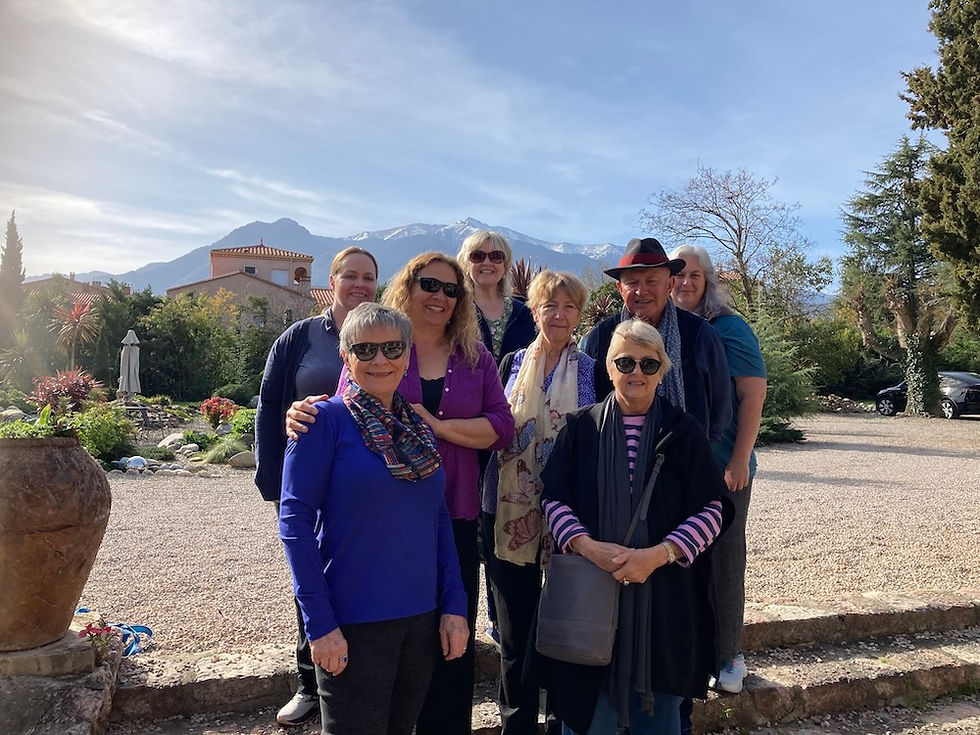Authors provide insights on writing, editing and publishing
- columbiahillen

- Sep 3, 2014
- 3 min read
Similarities and differences between news and creative writing, use of colloquial language in novels and short stories, publishing as a business and effective strategies for better editing – these were just some subjects discussed at the inaugural week-long ‘Ireland Writing Retreat’ at Teac Jack in Gaoth Dobhair this summer.
Under the banner ‘Forgotten Land, Remembered Words,’ Kenneth Gregory, author of the fantasy novel, ‘The Polaris Whisper,’ (Blackstaff Press) the first in a triology, for which negotiations are underway to transform it into a film and a television series, told participants from Australia, Austria, America and England that, “every writer their own approach to writing, each is different.”
“I’m up at seven o’clock every morning and disappear into my room where I spend several undisturbed hours every day putting words on a screen, I’m not a night owl,” he said. “Even in terms of planning a novel, authors have their own strategies. In my case, I had the germ of an idea and wrapped that idea round some of the most mysterious and mystical elements in Ireland, including Newgrange and the Book of Kells.”
He added, “I’ve always been interested in the creative process and decided to give it a go, sometimes I write several thousand words a day,” he said. Gregory has now embarked on a series of novels, the first entitled ‘Shahryár’s Heir: A Prince among Thieves’ based on the Arabian Nights classic tales as well as a stand-along novel entitled ‘Brinaleck’ named after a village in west Donegal. He is also developing an enhanced Ebook on ‘The Polaris Whisper’, which will contain added factual, historical information on places and names in his novel, maps and added biographical background.
Gregory said “proper research to attain historical accuracy Is extremely important’ and that he was fortunate to work with a high-level expert on the Book of Kells at Trinity College Dublin.
In contrast, the daily working routine of author Anthony Quinn, from Tyrone, is quite different. “I rise at around 5.30 every morning and write, with tight editing, until I have a page completed, around 300 words,” he said. “In this way in less than a year I have finished a novel.” Quinn has already had three novels published, one in the historical fiction genre entitled ‘The Blood Dimmed Tide” based on the persona of port W.B. Yeats and events in Ireland around the year 1918; and two contemporary thrillers in the Inspector Celcius Daly series, entitled “Border Angels,’ and ‘Disappeared,’ the latter being republished later this year, both set in the Irish border region.
The two novelists said having different life experiences helped in the writing process “providing a of pool of information from which to draw.” Gregory, for example, became a published author after working as civil servant, owning and running a Belfast pizza parlor for ten years and establishing a church-supply company; while Quinn, after completing a degree in English at Queens university, worked as a social worker, organic gardener and yoga teacher, before moving into the writing field. Quinn is represented by Paul Feldstein of the Feldstein Agency.
In discussing the similarities and differences between news and creative writing, both authors agreed that, as in journalism, the title of a novel and the first paragraph must grab readers’ attentions. “The differences in the two forms of writing, however, is that in journalism you supply the reader with relevant information as quickly as possible, while in novel writing, you avoid doing that at all costs, instead bringing the reader on a suspenseful and intriguing journey,” said Quinn.
Eileen Burgess, librarian and Divisional Manager of Donegal County Council Cultural Services and a guest speaker, told her audience about a number of cultural initiatives underway to expand the number of book readers in Donegal, including activities of the annual Earagail Arts Festival and a project in partnership with Coillte.
Rachael Kelly, award-winning author and expert on the torrid saga of Mark Antony and Cleopatra, Queen of the Nile, made a public, multi-media presentation at Teac Jack part of the retreat. Participants also received basic tuition in Irish language and ceildhe dancing as part of the cultural programme.









Comments